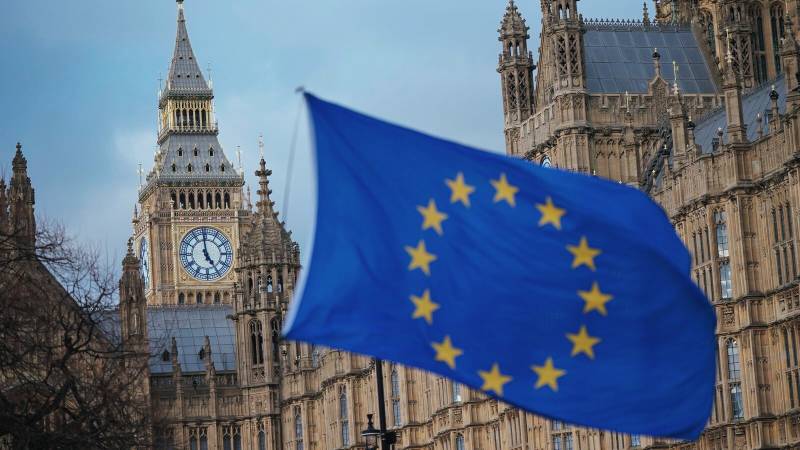
When the United Kingdom voted to leave the European Union in 2016, the decision sent shockwaves through political, economic, and social landscapes. Five years since officially severing ties on January 31, 2020, the question lingers—has Brexit been a resounding success or a frustrating stalemate? While proponents herald sovereignty regained and regulatory freedom, critics lament economic downturns and diplomatic isolation. As the dust settles, the contours of post-Brexit Britain remain complex, contradictory, and deeply divisive. The most tangible impact of Brexit has been on the UK’s economy. Initially, promises of unshackling British industry from EU red tape and securing lucrative global trade deals fueled optimism. However, reality has been more sobering. Trade with the EU, once seamless, has become burdened by bureaucratic frictions, border checks, and customs declarations. Small businesses, once thriving under the single market, now navigate an intricate web of compliance measures, leading to increased costs and supply chain disruptions.
The Office for Budget Responsibility (OBR) estimates that Brexit has shaved off around 4% of the UK’s GDP in the long run. Sterling’s depreciation post-referendum remains largely unrecovered, further exacerbating inflationary pressures. Moreover, while Britain has signed multiple trade agreements—including those with Japan, Australia, and New Zealand—the economic benefits have yet to compensate for lost access to the EU’s vast single market. However, Brexit supporters argue that the UK’s newfound agility allows for tailor-made economic policies. The government’s ability to diverge from EU regulations theoretically fosters innovation, particularly in fintech, life sciences, and AI. Yet, five years on, the promised economic renaissance remains more aspirational than actualised. At the heart of the Brexit campaign was the notion of ‘taking back control’—reclaiming sovereignty from Brussels and restoring national autonomy over laws, borders, and trade.
To some extent, this goal has been achieved. The UK is no longer bound by EU legislation, the European Court of Justice holds no jurisdiction, and Westminster dictates domestic policy without external oversight. However, this newfound autonomy has come at a cost. The UK-EU relationship remains fraught, with ongoing tensions over the Northern Ireland Protocol, fisheries disputes, and regulatory alignment. Far from the promised ‘Global Britain’ narrative, Brexit has also led to a diminished diplomatic presence. Britain’s absence from key EU discussions has curtailed its influence on European affairs, while transatlantic relations with the United States have been more pragmatic than special.
Brexit has delivered sovereignty but at the cost of economic and diplomatic challenges
One of Brexit’s most contentious battlegrounds has been immigration. The end of free movement meant tighter border controls and a shift to a points-based system aimed at attracting ‘high-skilled’ workers. While this move aligned with sovereignty-driven ambitions, it inadvertently triggered labor shortages, particularly in agriculture, healthcare, and logistics. The hospitality and food production sectors, once heavily reliant on EU workers, have faced staffing crises, leading to supply chain disruptions and increased costs. Similarly, the NHS has struggled to recruit vital personnel, exacerbating pre-existing pressures on the healthcare system. Brexit may have given the UK control over immigration, but at the cost of economic efficiency and workforce sustainability. The Brexit referendum exposed deep political and regional fractures—ones that persist half a decade later.
Scotland remains vocally pro-EU, with renewed calls for independence bolstered by Brexit-induced grievances. Northern Ireland, caught between UK sovereignty and EU single-market obligations, continues to grapple with the complexities of the Northern Ireland Protocol, fueling tensions between unionists and nationalists. Public sentiment, once galvanized by leave-or-remain fervor, has evolved. Polls indicate a growing perception that Brexit has failed to deliver its promised prosperity, with a significant portion of voters now viewing the decision as a misstep. However, political fatigue means a full-fledged campaign for EU reintegration remains unlikely in the foreseeable future.
One of Brexit’s touted advantages was the ability to craft domestic regulations without EU interference. This newfound regulatory freedom has led to divergence in areas such as environmental policy, financial services, and labor laws. While this allows for tailored legislative approaches, it also risks creating compliance complexities for businesses operating across both UK and EU markets. For example, the UK’s decision to relax certain financial regulations post-Brexit has been framed as an attempt to boost competitiveness. However, such divergence also raises concerns about market fragmentation and potential trade barriers. In essence, regulatory autonomy is a double-edged sword—offering flexibility but at the risk of increased operational challenges.
Brexit aimed to establish a 'Global Britain' with independent trade and diplomatic influence, but the reality has been mixed. While new trade deals have been made, they largely mirror past EU agreements rather than unlocking significant new opportunities. The UK's global influence has waned, requiring greater diplomatic effort. The much-touted 'Indo-Pacific tilt' remains uncertain in impact. Overall, Brexit has delivered sovereignty but at the cost of economic and diplomatic challenges. Its long-term success or failure hinges on the UK's ability to convert independence into meaningful gains, a question that only time will answer.

